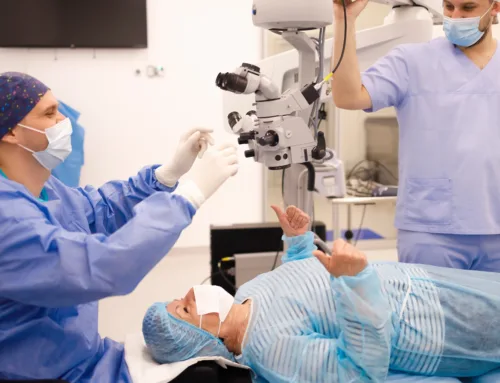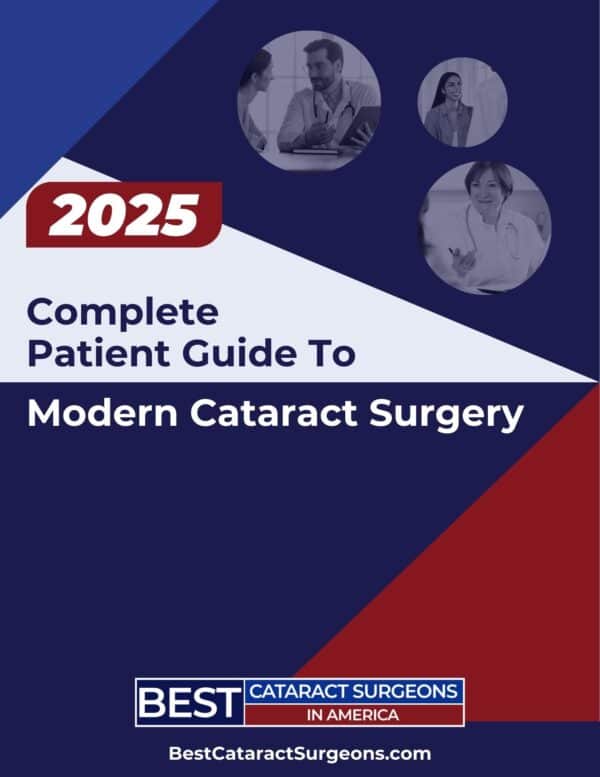As we age, our eyes undergo natural changes that can affect our vision, and for those 55 and older, cataracts are a common concern. Regular eye check-ups become increasingly crucial at this age to monitor overall eye health and detect issues early on. Fortunately, modern cataract surgery offers advanced solutions like multifocal lenses to help correct a wide range of vision problems.
What Are Multifocal Lenses?
Multifocal lenses are advanced intraocular lenses (IOLs) designed to provide clear vision at multiple distances after cataract surgery.
How Do Multifocal Lenses Work?
These lenses use advanced optics to create multiple focal points within a single lens. By distributing light to different areas, they allow your eyes to focus on objects at various distances. Your brain then automatically selects the appropriate focal point based on what you’re viewing.
Are There Different Types of Multifocal IOL Lenses?
Yes, there are several types of multifocal IOL lenses, including:
- Diffractive. Uses concentric rings to split light for near and distant vision.
- Refractive. Employs different power zones to provide multiple focal points.
- Trifocal. Offers 3 focal points for near, intermediate, and distance vision.
- Extended Depth of Focus (EDOF). Creates an elongated focal point to enhance the range of vision.
- Bifocal. Provides 2 focal points, typically for near and distance vision.
While multifocal lenses offer many advantages, they’re not the only option for cataract surgery, as there are monofocal lenses (clear vision at one distance which may need glasses), accommodating (clear vision at various distances), and monovision (different lens powers to achieve a range of vision).
What Benefits Can You Expect From Multifocal Lenses?
1. Improved Vision at Multiple Distances.
Multifocal lenses can significantly reduce dependence on glasses for most daily activities, including reading, computer work, and driving.
2. Comfort & Convenience.
With multifocal lenses, you can enjoy a more natural range of vision without constantly switching between different pairs of glasses.
3. Reduced Eye Strain.
By providing clear vision at various distances, multifocal lenses can help reduce eye strain associated with constantly refocusing or changing glasses.
4. Long-lasting Solution.
Cataract surgery with multifocal lenses is a one-time procedure that can provide clear vision for many years to come.
Who Is a Good Candidate?
Multifocal lenses are ideal for patients who:
- Are 55 or older and developing cataracts.
- Desire reduced dependence on glasses.
- Have generally healthy eyes without other significant conditions.
- Have realistic expectations about the outcomes.
Potential Drawbacks
While multifocal lenses offer many benefits, it’s important to be aware of potential drawbacks:
- Some patients may experience glare or halos around lights, especially at night.
- Not all patients achieve complete freedom from glasses.
- The cost of multifocal lenses is typically higher.
How to Choose The Right Surgeon?
Selecting an experienced cataract surgeon is crucial for achieving the best possible outcomes with multifocal lenses. Look for a surgeon who:
- Has extensive experience with multifocal lens implantation.
- Uses advanced surgical techniques and technology.
- Takes time to understand your visual needs and lifestyle.
- Provides comprehensive pre-and post-operative care.
A skilled surgeon will work closely with you to find the best solution for your unique needs, ensuring that the chosen approach aligns with your lifestyle and vision goals.
Recovery and Outlook
Recovery from cataract surgery with multifocal lenses is generally quick, with most patients experiencing improved vision within a few days. But it’s good to remember that it may take your brain a few weeks to fully adapt to the new lenses and for your vision to stabilize completely.
Wrapping It Up
Multifocal lenses offer an exciting opportunity for cataract patients to achieve clear vision at multiple distances without relying on glasses. This, in turn, can greatly enhance the quality of life for many, but is a decision that should be made during a consultation with an experienced eye surgeon based on your individual needs and expectations.
Your Clear Path to Better Vision Starts Here
If you’re ready to explore the possibilities of multifocal lenses, then take the first step by visiting our website at Best Cataract Surgeons. Our directory will connect you with top cataract surgeons in your area, who can provide personalized consultations, answer your questions, and guide you to a clearer tomorrow.











